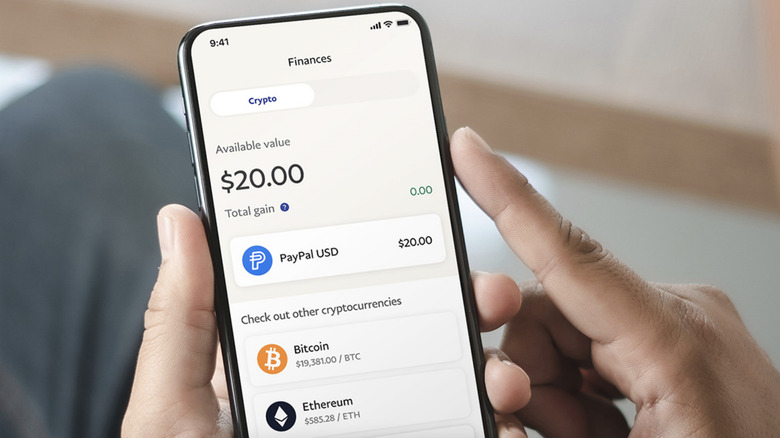PayPal Now Has Its Own Stablecoin, And It's Backed By The US Dollar
Payments behemoth PayPal has introduced a U.S. dollar stablecoin, becoming the first financial tech business of its scale to officially embrace digital tokens. But unlike your average crypto coin, like Bitcoin and Ethereum, PayPal USD (PYUSD) relies directly on the US Dollar for its market value, which means it is theoretically shielded from the kind of market upheavals that throw cryptocurrency values in disarray on a daily basis.
The PayPal USD is issued by the Paxos Trust Company, and as mentioned above, it holds a 1:1 conversion rate with the fiat US Dollar currency. For now, the biggest benefit of PayPal USD is that you don't need to rely on an external wallet to conduct crypto transactions. Instead, PayPal will let you transfer peer-to-peer funds directly into another wallet. PayPal says it will let you convert any supported currency into PayPal USD.
Categorically, PayPal USD is an ERC-20 token tied to the Ethereum blockchain, and it will soon be available in the Venmo app, as well. The core PayPal app and its web client already offer support for major crypto coins like Bitcoin, Ethereum, and Litecoin, so it isn't surprising to see that PayPal is now experimenting with stablecoins. PayPal USD rollout begins with users in the United States soon, but there's no word on global rollout as of now.
Avoiding the unpredictable crypto tides
PayPal says users can start their crypto trading journey in the app with a sum as small as $1, with the company allowing users to convert them into a seller's currency at no extra fee. However, conversion from one crypto coin to another, say PayPal USD to Bitcoin, would entail a fee. However, if you are sending PayPal USD to a friend or family member using the peer-to-peer transfer feature, there's no fee involved.
"There are no fees to buy, sell, hold or transfer PYUSD to eligible US PayPal Balance accounts," the company notes on a support page. As convenient as it all sounds, especially for users that can't use Venmo or aren't based in the US to freely conduct US Dollar-based transactions, the regulatory situation in the US is still very much uncertain. Then, there's some history of failure in the stablecoin industry.
Meta planned to launch a stablecoin called Libra aka Diem, but federal regulators fiercely opposed it. Meta eventually had to offload its crypto assets to Silvergate for around $200 million, after spending years on the project and hiring David Marcus, who was previously a President at PayPal. Right now, PayPal says it is targeting a community of "external developers, wallets and web3 applications," with its stablecoin, but it would be interesting to see how the federal authorities process the move.
